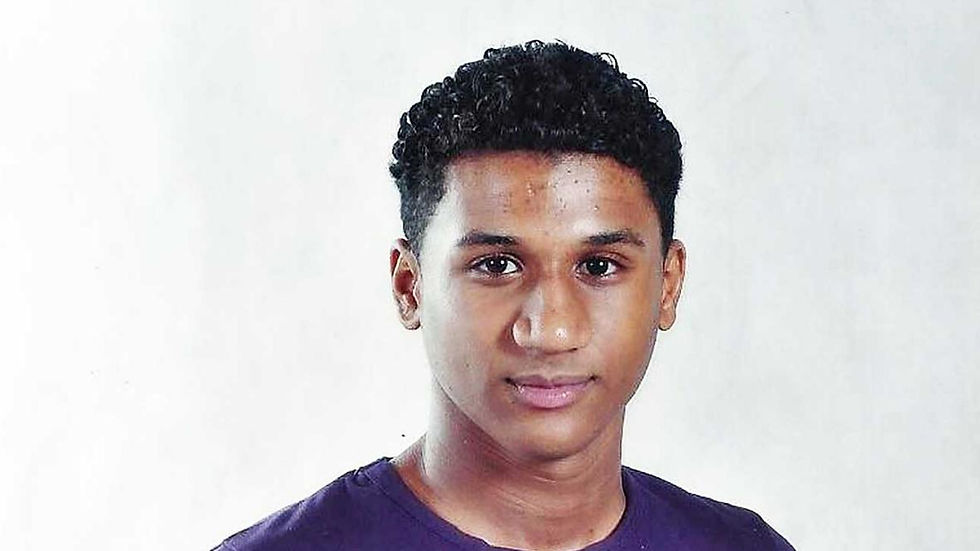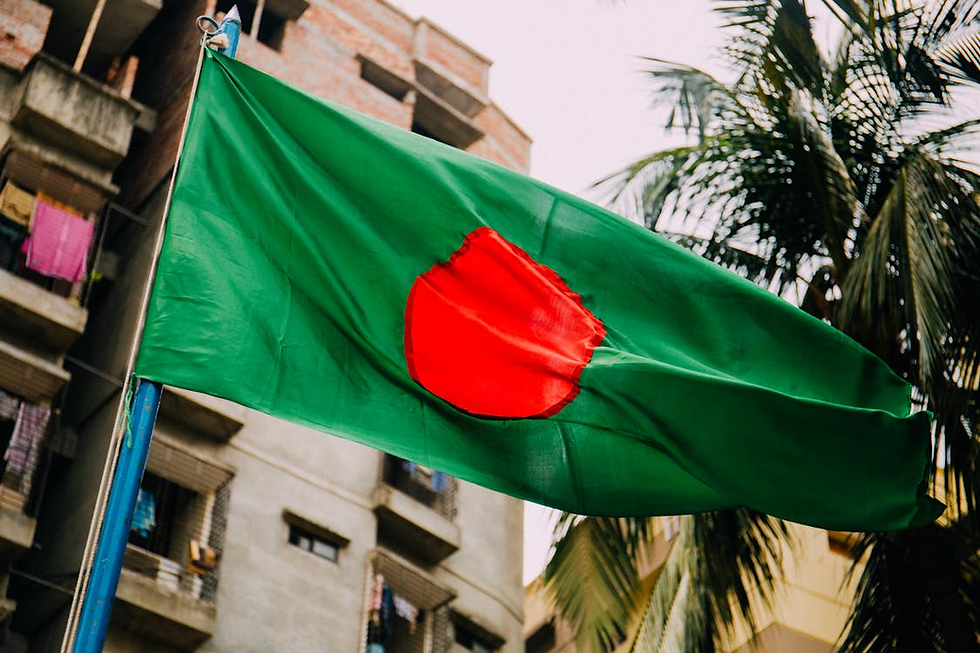Saudi Arabia Executes Man Accused of Participating in Protests
- Hannah McGaw

- Jun 18, 2021
- 3 min read
Updated: Dec 23, 2024
Saudi Arabia has executed a man for offences allegedly committed when he was a minor, according to many human rights groups.
On the 25th May 2015, Mustafa Hashem al-Darwish (26) was arrested and charged with protest-related offences. Amnesty International claims that al-Darwish was placed in solitary confinement and held incommunicado for six months. He was denied access to a lawyer until the beginning of his trial, two years after his arrest. In March 2018, he was sentenced to death; by May this year, he had exhausted all appeal options. On Tuesday 15th June 2021, his execution was carried out in Dammam: the province's administrative capital.

The charge sheet used in the trial accused al-Darwish of “participating in armed rebellion”, “seeking to disturb security by rioting”, and “sowing discord”. Evidence used in the trial included a picture “offensive to the security forces”, and a signed confession from al-Darwish, admitting to his involvement in more than 10 riots between 2011 and 2012.
Many human rights groups have claimed that the trial was "deeply flawed”. Human right’s groups Reprieve and Amnesty International have said that the confession was obtained under duress, and that the confession was later recanted. In court, al-Darwish said that his confession was obtained through torture.
According to Amnesty International, it is unclear whether he was executed for crimes he committed as a minor. The group claims that he was detained in 2015, when he was twenty, for alleged participation in riots between 2011 and 2012, though the official charge sheet does not specify the dates his alleged crimes took place. This means he could have been only seventeen at the time, or newly turned eighteen. However, the government maintains the claim that al-Darwish was convicted, and executed, for crimes he committed when he was nineteen. No specific dates for his alleged crimes have been given.
Last year, Saudi authorities said they would no longer execute those who committed crimes as minors. Instead, the accused would serve a maximum of ten years in juvenile detention. However, this decree was never reported by the state’s media nor published through official channels. In February, The Human Rights Commission told Reuters that the ban would only apply to less serious crimes.
According to data provided by The European Saudi Organization for Human Rights, or ESOHR: “Of the 53 prisoners currently facing potential death sentences, four were convicted of crimes committed when they were younger than 18.” In a statement, Reprieve said: “The execution of Mustafa al-Darwish once again shows that the Kingdom’s claim to have eliminated capital punishment for childhood crimes is not true.” As the offenses had no specific dates in the document, rights groups argue that his case should have been reviewed under the reformed law.
However, in a statement, The Interior Ministry said that he was executed after being found guilty of participating in the formation of an armed terrorist cell that monitored and intended to kill police officers, and had a history of shooting at police patrols and making Molotov cocktails to further target police. Other charges allege that al-Darwish participated in armed rebellion, provoking chaos and sectarian strife.
Al-Darwish was a member of Saudi Arabia's Shiite Muslim community (which represents approximately 15-20% of the native population). In the Shiite Muslim-majority region of Qatif, there have been regular anti-government protests. Between 2001 and 2012, there was a period of heightened unrest as the Arab Spring protests swept through the Middle East.

VOA News reports that Saudi Arabia executed 37 citizens, 34 of which were identified as Shiites, in 2019. All were killed in a mass execution for “terrorism-related crimes”. Similarly, in 2016, forty-seven people were executed in one day, also for terrorism-related crimes. Among those executed was Nimr al-Nimr, a prominent Shiite cleric, whose death sparked protests throughout the Middle East, leading to the ransacking of the Saudi Embassy in Tehran. The European Saudi Organisation for Human Rights reports that, so far, in 2021, Saudi Arabia has carried out twenty-six executions.
Al-Darwish’s family reportedly received no notice of the execution date and found out he had been executed through reading online news. His family claims that he only attended anti-government protests, and was not directly involved.

_edited.png)



Comments